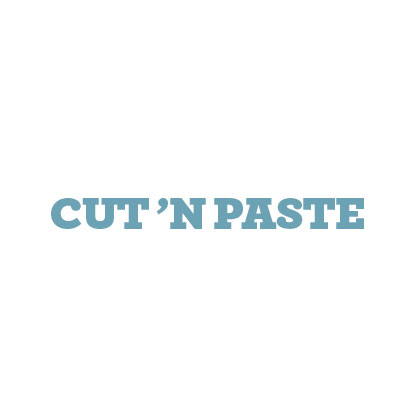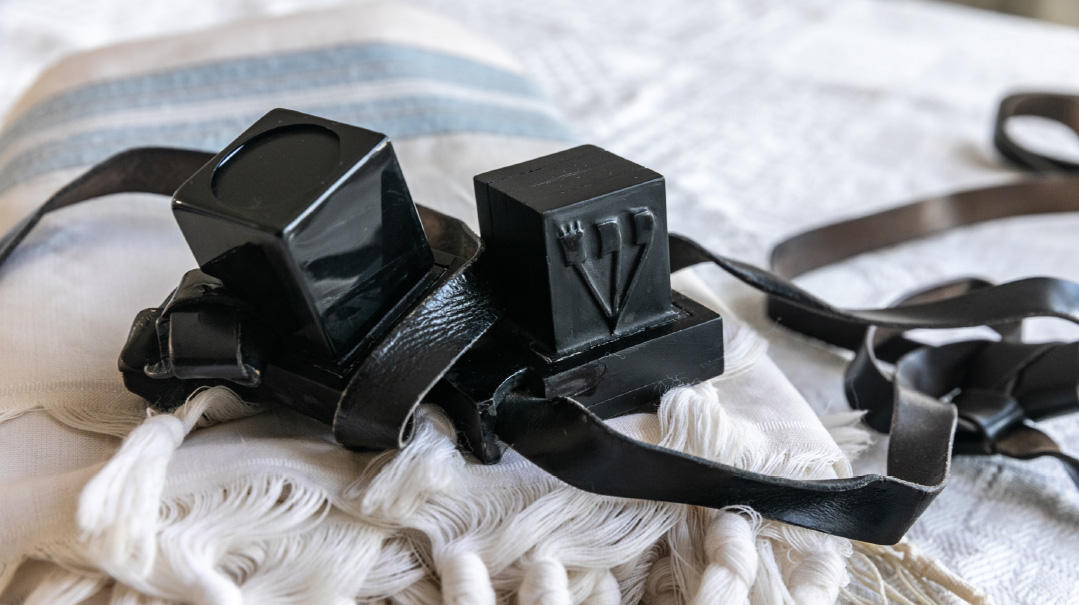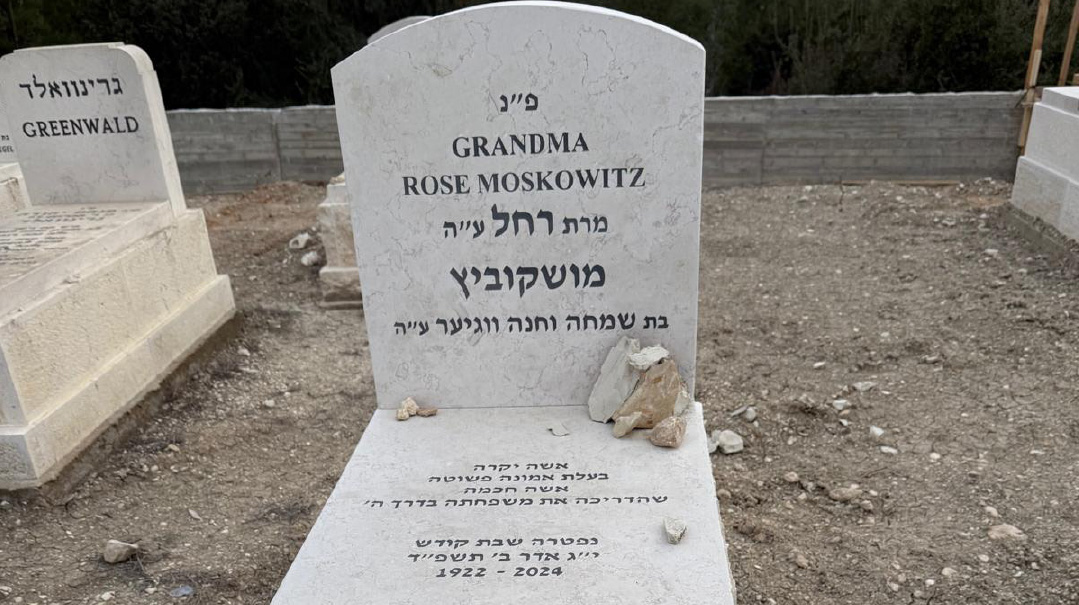Not Always Is Nostalgia Nostalgic
| October 28, 2020Conscious memories begin with fuzzy images ingrained in a very young child’s mind

We arrived on the shores of the United States in 1948. My father a”h was wont to say that he had one penny in his pocket for each year, 48 cents. Don’t rightly know what was in those few valises. Couldn’t have been much. Much later he confided in me that “the Joint,” a Jewish philanthropic agency, gave six months of assistance. From that point on, we were totally reliant on chasdei Hashem.
Conscious memories begin with fuzzy images ingrained in a very young child’s mind.
Teller “Ehvenoo” (Avenue) in “deh Brunx” between East 175th Street and East 176th Street is where we lived till we moved to Boro Park. It was a narrow canyon nestled between towering walk-ups, each clustered with tiny apartments opening to semi-dark, echoing hallways.
The first stop was 1052 Teller Avenue . The apartment was right over the boiler, so we had a surfeit of heat even in the summer. Floor warm to little bare feet that pattered about, careful to avoid the hard, sharp edges of the linoleum curling up, in spite of the best efforts of my father a”h to tack them down. Making friends with the various fauna that shared the apartment rent free.
Finally, 1076 Teller Avenue. I remember the move. My father and uncle a”h doing all the schlepping from 1052 down the block to 1076 and me riding in middle of the couch when that was brought over. The fourth-floor apartment in the back had a much better climate, less numerous fauna; the view, however, left much to be desired. Looking out, all one was able to see was the other faceless apartment buildings with their backs turned toward us across the courtyard, and a massive spider web of power lines, telephone lines, and clotheslines stretching helter-skelter between them.
Teller Avenue between East 175th and East 176th had a number of notable characters who directly affected our lives. These people deserve to have more of their stories told, as they each cared for us and helped us acclimate to life in the United States. There was Mr. Marshall, the grocery man; the tailor, of whom I was deathly afraid; Bud, the proprietor of the nonkosher grocery store, who was forever rebuilding more 1932 Fords; and Mr. Yuden, the pharmacist. His drug store, with an unmistakable medicinal fragrance, which permeated even the beautiful wooden glass-fronted cabinets. Behind the counter stood Mr. Yuden in his horn-rimmed glasses, dispensing the concoctions prescribed by the doctors, advice, and a kind, gentle smile to go along with the over-the-counter medications that were meant to be a real panacea for our ills.
Our parents didn’t have the time or funds to go places, so we had to find ways to occupy our precious free time and thereby satisfy the fertile imagination of little people who had no toys.
In front of 1076 were two concrete-topped brick boxes that stood guard on the steps. Surrounded by a heavy iron fence, these structures became our buses, airplanes, and fire trucks. Put in a milk box for the driver or pilot, a few more for passengers. Any small people passing by were fair game for the sales pitch of the driver or pilot, inducing them to risk ripping their clothes as they climbed into his box.
Object of the game was to have more participants than your competition across the steps, and you were off to fight a blazing five-alarmer with the passengers mimicking the sounds of the siren and bells.
Another critical source of entertainment was Julius. The “super” of a few buildings on the block, he was a mountain of a man with a huge belly. He really deserves a story all by himself. Being friendly and respectful with him meant securing his full cooperation with the wacky ideas we came up with to fill our spare time.
Julius had a laugh that was infectious. It started someplace near his knees, and rumbled up into his belly, which started to shake convulsively; that propelled the laugh into his chest, and it then erupted into a monstrous guffaw. This process didn’t stop until tears were streaming down his cheeks.
You see, if you were really on good terms, you could watch him operate the dumbwaiter.
Another form of entertainment was watching the coal delivery and the removal of the cans full of ashes — permission for which was granted by the grace of Julius.
His pride and joy was this huge Harley-Davidson motorcycle, all white and full of chrome. He lavished a good part of his day off polishing and cleaning it, and making even the saddlebags shine. Somehow, he managed to do so only when we were home and able to watch.
But more of Julius later.
Making a left turn from Teller Avenue onto 176th Street, you encountered a massive hill. At the top of that hill, you made a right, and in middle of the block was “the Park”! A concrete slab with two sizes of swings, see-saws, handball courts perpetually occupied, basketball courts, monkey bars, and a spray shower wading area. Wooden benches supported by concrete elbows framed the perimeter.
The little tables in front of these benches had checkerboards embossed into them. The adults would play endless games of checkers, with careful thought and planning going into each move. If we were lucky, we were able to commandeer one of these tables as a base for the knock-hockey board.
If you had a good relationship with the “parkee,” he would give you a good knock-hockey board, a good puck, and good miniature hockey sticks. If there was a flaw in any of these items, it impeded your enjoyment of this highly competitive game to the fullest.
This entertainment was reserved for sunny Shabbos and Yom Tov afternoons, and the rare occasion when we had no English. Otherwise, if all the boards were occupied, it was basketball (an exercise in frustration as we were too small and weak), the monkey bars, or the cruelty of riding the see-saw. (When you were on the ground, you would jump off the see-saw and let your friend, suspended midair, come crashing down in a spine-shattering thud — which of course meant that you were now exposed to in-kind retribution.)
Failing that, we could always wander down to the Sealtest plant and watch the huge, impossibly long stainless-steel trailers back into their assigned slots, sanitize the connection, hook up the pipes, and disgorge the milk. It was rumored that this plant made ice cream — something we all hoped to see but were unable to verify, as we couldn’t wheedle our way in for a tour.
Getting bored, we would walk to Webster Avenue and watch the trolleys come rumbling down the tracks. Long umbilical cords reaching up to the nourishing arteries of power suspended high above, a cyclops headlight shining the way forward — and if the driver was in a good mood, he would ring the bell for us. Game was to see how many trolley cars we could induce to ring that bell.
And finally, the scooter. Here is where Julius played a key role.
The pride of the best scavenger hunter was the scooter.
You need to find:
- a wooden box (grapefruit boxes were the proven best)
- a six-foot-long two-by-four
- two smaller pieces of wood
- two #6 empty fruit or vegetable cans
- nails
- one discarded roller skate whose wheels still worked.
The wooden box was the easiest, as long as there was no mold in it. You could convince Mr. Marshall to save you one. A six-foot two-by-four was harder because it was a usable piece of lumber. Ditto for the one-by. We could only find bent nails and abused our fingers mercilessly to straighten them out.
Finally, the roller skate. All metal with a square peg, and a key to match that opened or closed the toe clamp and adjusted the length of the skate so it would fit the foot of the lucky child who was the proud possessor.
We were at the mercy of Julius to store these items until we had all of the necessary supplies. Pretending to be serious and considering each request with due gravity, he would look at us, think it over, and finally agree we could store the material in one tiny corner of the huge cavernous basement.
Eureka, we now have all the parts! Truly miraculous. We would carefully affix the box to the two-by-four using straightened nails, carefully nail the two smaller pieces of wood to the sides of the box to serve as handle bars. Nailed the cans to the box to serve as headlights, and half of the skate to each end of the two-by-four.
Julius somehow managed, after much persuasion and scratching his head, to find some paint to complete the project.
How proud and satisfied we were to finally display our labor of love to the public. With due gravity and feeling so important, we would haul the contraption to the top of the hill on East 176th Street, put our feet on it, hold on to the wooden slats, and, with the wind whistling through the open cans, sail down that hill to Webster Avenue.
I sit back and remember the simple pleasures. We made the absolute best of that which our environment provided. We needed to be creative, resourceful, and willing to spend time and energy in the pursuit of our fantasies. And we had to do all that in the very limited free time available to us. Most if not all of us were at the bus stop at 7:30 a.m., dressed with the load of books in our hands (no knapsacks back then) to get our kidneys kicked about on a school bus on the one-and-a-half-hour ride to Manhattan. We left yeshivah at 6:15 p.m. and made the same one-and-a-half-hour journey back home. After supper, homework the same amount as was given in Mitzrayim, we bathed and sank into bed, exhausted.
So that little bit of recreation we managed to make for ourselves was all the more meaningful. I look back today, 65 years later, and the good taste floods my mouth and pleases my brain. How we made use of the time, the creativity and persistence that was needed. It really prepared us for life. We sucked on the lemon we were given and found it in the final analysis to be sweet.
That was how we finished the “camp season.” Not for us were the trips and forms of entertainment that bordered on the wild side. We were forced to become creative, instead of waiting 20 minutes for a two-minute death-defying drop, twist-upside-down ride, to be forgotten the minute the grains in your cochlea settle.
For many this year under COVID, Succos meant no traveling to Orlando or other venues. Nowadays, each trip, in order to be considered entertainment, has to be wilder and more intense than the one before; yet it leaves no lasting impressions, no lessons learned, in spite of the tremendous effort and money spent.
My experiences cost nothing, yet we learned so much. A child today would laugh at what we considered fun. Yet when I went to sleep as a child, I was satisfied and content. I was not exhausted from flights, the hurry and tension that accompanies these journeys, and the stress they leave behind.
Are my memories of these activities nostalgia? Or are they a longing for my grandchildren to have and derive the same satisfaction, growth, and feelings of accomplishment?
You be the judge.
Rabbi Weinberger is the former executive director of Yeshiva Ch’san Sofer.
(Originally featured in Mishpacha, Issue 833)
Oops! We could not locate your form.






